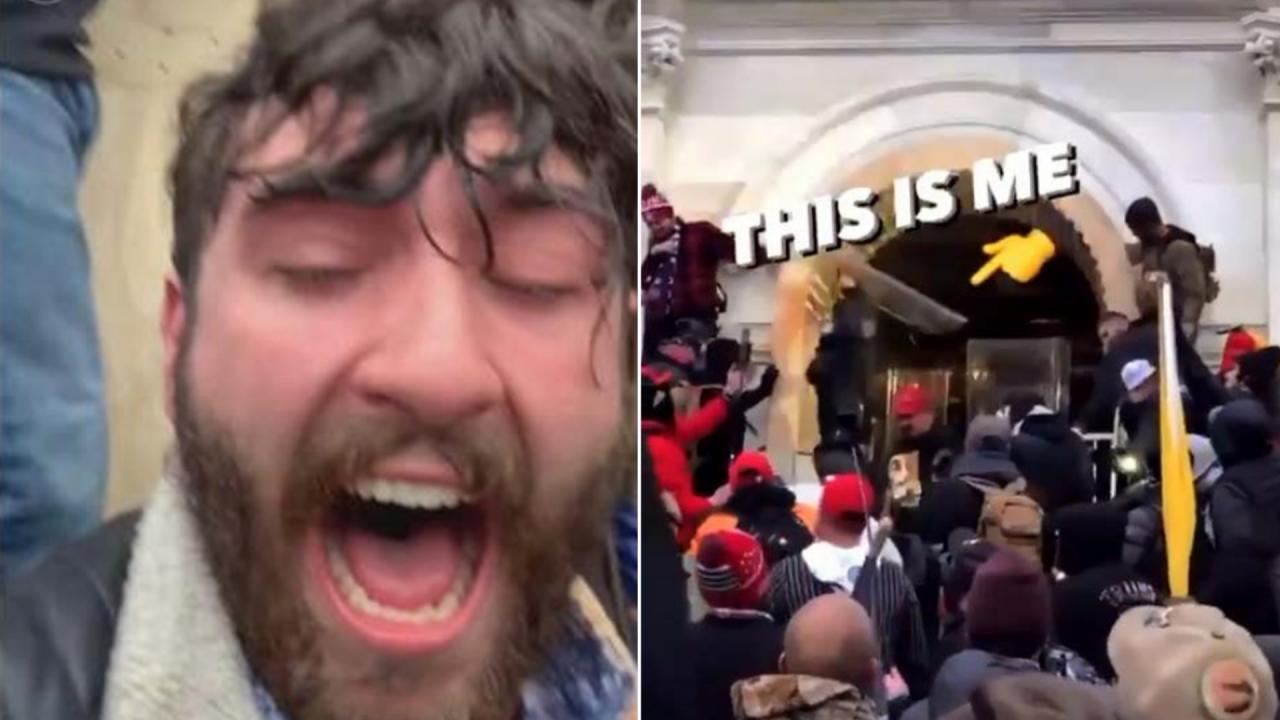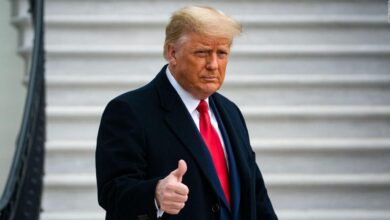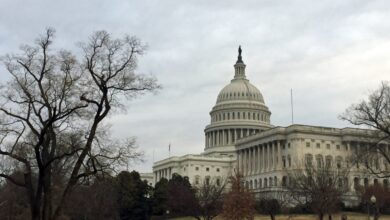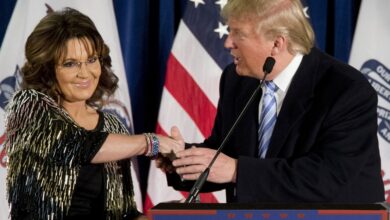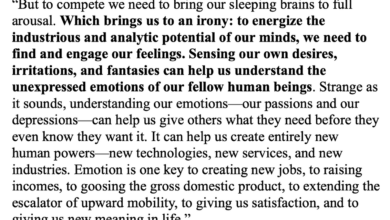Trump Pardons Capitol Rioters A Deep Dive
Trump pardons capitol rioters, igniting a firestorm of debate and raising crucial questions about presidential power and the justice system. This act has thrust the January 6th Capitol riot into a new light, prompting a deep examination of the motivations behind the events, the legal ramifications of the pardons, and the potential long-term consequences for the nation.
The January 6th insurrection was a pivotal moment in American history. Understanding the events leading up to and during the riot, the individuals involved, and the subsequent legal proceedings is crucial for contextualizing the pardons. This article delves into the historical precedents for presidential pardons, contrasting them with the specific circumstances of these pardons. The public reaction, ranging from outrage to support, is also analyzed, alongside the various legal and political implications.
Background of the January 6th Capitol Riot
On January 6, 2021, a mob of individuals, largely motivated by unsubstantiated claims of election fraud, stormed the United States Capitol Building in Washington, D.C. This unprecedented attack on American democracy disrupted the certification of the 2020 presidential election results and resulted in significant physical damage, injuries, and a period of national uncertainty.
Key Events Leading Up to the Riot
The events surrounding the January 6th attack were a culmination of political tensions and false narratives surrounding the 2020 presidential election. Claims of widespread voter fraud, propagated by various figures and media outlets, fueled the belief that the election results were illegitimate. These claims were repeatedly debunked by election officials and legal authorities. Public rallies and demonstrations, often fueled by these unsubstantiated allegations, were held in the days and weeks leading up to the event.
The rhetoric surrounding these events created a charged environment that ultimately culminated in the riot.
Motivations and Groups Involved
The motivations behind the attack varied, but a significant portion of the participants were supporters of former President Donald Trump. They believed, falsely, that the election was stolen from him. Other groups, including those with extremist political ideologies and individuals motivated by personal grievances, were also present. The involvement of various individuals and groups demonstrates the breadth of the participants’ motivations.
Immediate Aftermath and Initial Responses
The immediate aftermath of the riot was characterized by chaos and uncertainty. The Capitol Building was placed under lockdown, and law enforcement worked to restore order. The attack resulted in injuries to both law enforcement personnel and rioters. Initial responses from various government agencies and political leaders were mixed, with some condemning the violence while others downplayed or excused the actions of the rioters.
The initial responses to the events highlighted the divisions within the nation.
Initial Legal and Political Ramifications, Trump pardons capitol rioters
Following the riot, a large-scale investigation was launched to identify and prosecute those involved. Numerous individuals were arrested and charged with various crimes, including assault, obstruction of Congress, and property damage. The attack led to a surge in discussions about election security, the role of social media in disseminating misinformation, and the need for increased political civility. The legal and political ramifications of the event had a lasting impact on the American political landscape.
The Pardons
The recent presidential pardons related to the January 6th Capitol riot have ignited a firestorm of debate, raising crucial questions about the application of justice and the potential ramifications for future political discourse. These actions have thrust the legal process and the very nature of presidential power into the spotlight, demanding careful consideration of the precedents set and the impact on the integrity of the justice system.The process of presidential pardon in the US is a powerful tool, granting the executive branch the authority to relieve individuals of legal penalties.
This authority, while significant, is not absolute, and its exercise is subject to legal and public scrutiny. The specifics of these pardons, and the associated arguments, are central to understanding their impact.
Presidential Pardon Process
The power to grant pardons is vested in the President of the United States, as Artikeld in Article II, Section 2, Clause 1 of the Constitution. This power extends to federal offenses, but does not cover impeachment. It is important to note that pardons do not erase the underlying criminal act; they simply remove the legal penalties associated with it.
The President’s decision is often subject to political considerations and public opinion.
Individuals Pardoned
A number of individuals implicated in the January 6th Capitol riot received pardons. Identifying the specific individuals and the nature of their involvement is crucial to understanding the scope of these actions. Public records, legal filings, and news reports provide a detailed account of the individuals who were pardoned and the associated charges.
Charges and Sentences
The charges and sentences faced by the pardoned individuals varied significantly. Some faced misdemeanor charges, while others faced more serious felony accusations. This diversity of charges underscores the varied levels of involvement and culpability among the individuals. A comparison of the severity of charges and the sentences imposed provides context for understanding the varying circumstances surrounding each case.
Legal Arguments
The legal arguments supporting the pardons were multifaceted. Some arguments emphasized the mitigating circumstances surrounding the events, highlighting factors such as the individuals’ claimed lack of intent to engage in violence or disruption. Other arguments may have centered on the perceived inappropriateness of the initial charges or sentences. Understanding the legal justifications is crucial for evaluating the appropriateness of the pardons.
Analyzing the legal arguments allows for a deeper understanding of the reasoning behind the decision to grant clemency.
Potential Impact on the Justice System
The impact of these pardons on the justice system remains a subject of ongoing debate. Critics argue that the pardons could undermine the integrity of the legal process and set a dangerous precedent, encouraging similar actions in the future. Conversely, proponents may argue that the pardons serve to address perceived injustices or offer a measure of reconciliation. The impact of these actions will likely be felt in the context of future legal cases and public discourse.
The long-term effects on public trust in the justice system will be a key area for ongoing monitoring and analysis.
Political and Public Reaction
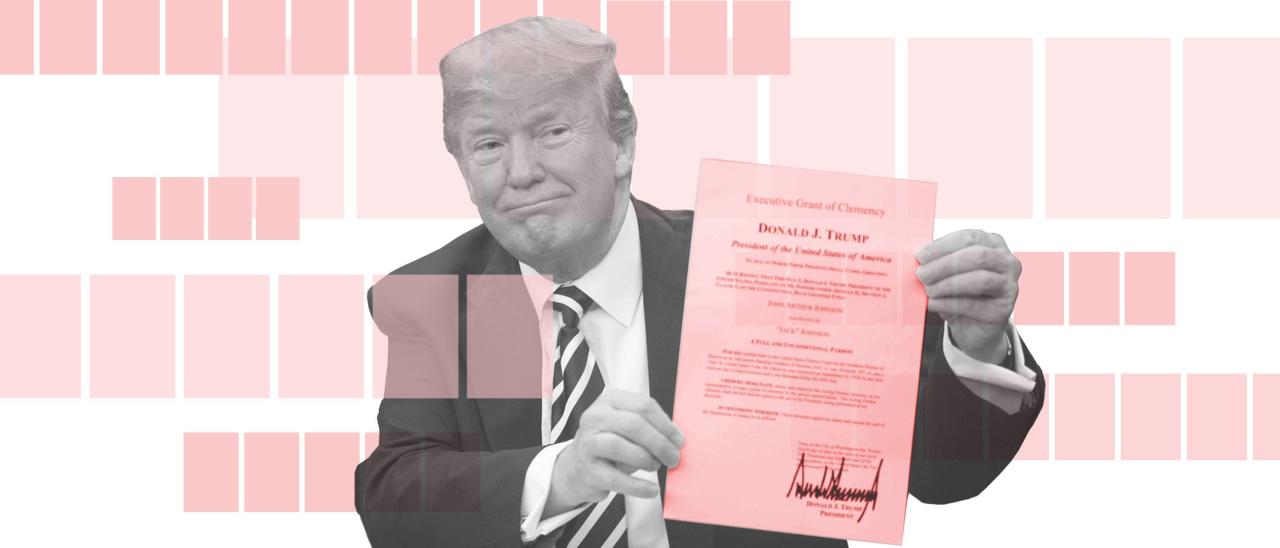
The pardons of individuals involved in the January 6th Capitol riot sparked immediate and intense reactions across the political spectrum. Public discourse became highly polarized, with passionate arguments both for and against the clemency shown to the rioters. This reaction reflected a deep division in American society regarding the events of that day and the appropriate response to those involved.The pardons were met with a wave of criticism and condemnation from various sectors, ranging from political opponents to concerned citizens.
The ensuing debate highlighted significant differences in values and perspectives regarding justice, accountability, and the role of the presidency in such matters. This analysis examines the public discourse surrounding the pardons, the reactions from political figures, and the arguments for and against the pardons.
Trump’s pardons of Capitol rioters are raising eyebrows, especially given a new book’s claim that the Trump team apparently got Fox News town hall questions in advance, potentially suggesting a degree of premeditation. This raises further questions about the motivations behind these pardons, and the overall fairness of the process. It’s a complex issue, but it certainly adds another layer of intrigue to the ongoing narrative surrounding the Capitol events.
Public Discourse on the Pardons
The public discourse surrounding the pardons was characterized by intense debate and disagreement. Discussions on social media, news outlets, and public forums focused heavily on the implications of the pardons, with significant attention given to the perceived lack of accountability and the potential for setting a dangerous precedent. Arguments against the pardons emphasized the need for justice and the importance of upholding the rule of law, highlighting the serious nature of the crimes committed by those involved.
Reactions from Political Parties
The reactions from various political parties were sharply divided. Democratic figures overwhelmingly condemned the pardons, asserting they undermined justice and encouraged further unlawful acts. They often highlighted the need for holding individuals accountable for their actions. Republican figures, in contrast, generally defended the pardons, often emphasizing the importance of forgiveness and second chances.
Examples of Statements and Actions by Public Figures
Numerous public figures issued statements regarding the pardons. Prominent Democrats criticized the move, arguing it sent a negative message about upholding the rule of law. For instance, Representative [Name of Representative] released a statement denouncing the pardons as a betrayal of justice. Conversely, some Republican officials praised the pardons, arguing they offered a path towards reconciliation and national healing.
Arguments For and Against the Pardons
Arguments for the pardons often centered on the concept of forgiveness and the need for reconciliation. Proponents emphasized the importance of moving past the events of January 6th and urged a path toward healing. Arguments against the pardons, however, stressed the importance of accountability and the need to ensure that such acts of violence are not excused. These arguments touched on the need for holding individuals accountable for their actions and the potential impact on future similar situations.
Trump’s pardons of Capitol rioters are definitely a hot topic, but what’s the deeper story? To truly understand the implications, you need to dig into the details and conduct your own research. Learning how to create original research, like examining primary source documents or conducting statistical analyses, is key to forming your own informed opinion. how to create original research is a great starting point.
Ultimately, the pardons raise important questions about justice and accountability, and further investigation is needed to fully grasp their impact.
Legal and Political Implications of the Pardons
The legal and political implications of the pardons are multifaceted and extend beyond the immediate controversy. Concerns arose about the precedent set by the pardons and the potential impact on future cases involving similar offenses. Legally, the pardons could be challenged on grounds of abuse of power or violation of constitutional principles. Politically, the pardons further deepened divisions in the nation and impacted public trust in the presidency and the justice system.
Legal and Constitutional Implications
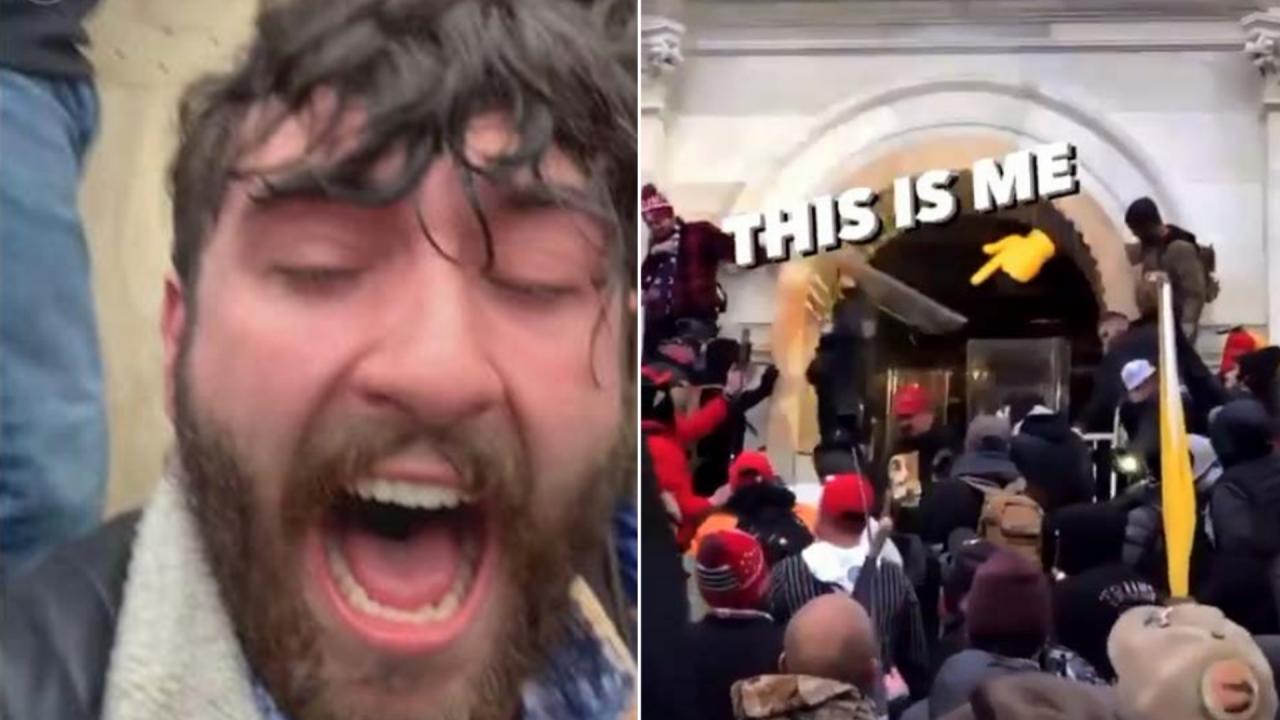
The Trump administration’s pardons of individuals involved in the January 6th Capitol riot have ignited a significant debate about the legal and constitutional ramifications of such actions. These pardons raise questions about the scope of presidential power, the fairness of the justice system, and the potential impact on future political unrest. The legal precedents, potential ramifications, and constitutional arguments surrounding these actions are crucial to understanding the long-term implications of this controversial decision.The power of presidential pardon is a crucial aspect of the American legal system, a power rooted in the Constitution.
This power is not absolute and has been subject to considerable judicial review and scrutiny throughout history. The implications of these pardons are not limited to the individuals involved but extend to the future of similar events and the public’s perception of the justice system’s impartiality.
Historical Precedents for Presidential Pardons
Presidential pardons are not a novel concept in American history. They have been used in a wide variety of situations, from wartime offenses to political controversies. Examining past instances of presidential clemency reveals a complex history, where the exercise of this power has often sparked controversy and debate. Understanding the nuances of these past instances provides context for the current discussion surrounding the January 6th pardons.
Potential Impacts on Future Similar Events
The pardons raise concerns about the potential chilling effect on the deterrent effect of the law. If individuals involved in future acts of political unrest believe they can be pardoned, it may reduce the likelihood of prosecution and create a precedent for such behavior. The pardons might signal a message to potential future protestors.
Comparison to Past Instances of Presidential Clemency
A comparison to past instances of presidential clemency reveals significant differences and similarities. The motivations, circumstances, and public reactions to those pardons differ from the January 6th case. Historical analysis can provide insights into how similar situations have been handled in the past and help evaluate the current context. This analysis will assess the unique factors of the current event.
Analysis of Possible Effects on Public Trust in the Justice System
The pardons have had a notable impact on public trust in the justice system. Many believe that the decision to pardon those involved in the Capitol riot undermines the integrity of the legal process. The perception of fairness and impartiality in the justice system is a key component in upholding democratic values.
Detail of Constitutional Arguments Surrounding Presidential Pardons
The constitutional arguments surrounding presidential pardons often center on the scope of executive power. The debate focuses on the limits of the pardon power, its potential abuse, and its impact on the principles of justice and due process. The specific language of the Constitution pertaining to pardons plays a significant role in the analysis.
Potential Consequences and Future Implications: Trump Pardons Capitol Rioters
The pardons of individuals involved in the January 6th Capitol riot have far-reaching implications that extend beyond the immediate political fallout. The actions, while seemingly focused on a single event, could establish precedents that reshape the legal landscape, influence political discourse, and potentially impact future attempts to challenge the democratic process. The consequences ripple through various aspects of American society, demanding careful consideration of their potential long-term effects.The decisions surrounding these pardons have the potential to set a dangerous precedent, possibly encouraging future acts of civil unrest and challenging the established norms of accountability.
The ripple effect of these actions is evident in the reactions across the political spectrum and the broader implications for the American legal system.
Potential Impacts on the Legal System
The pardons have the potential to erode public trust in the justice system. When individuals who participated in violent acts against the government are pardoned, it raises questions about the efficacy of legal processes and the impartiality of justice. This perception of leniency could potentially diminish the deterrent effect of legal penalties, potentially encouraging similar acts of civil disobedience in the future.
A key aspect to consider is whether such pardons will establish a new standard for handling such offenses, potentially leading to a diminished respect for the rule of law.
Potential Effects on Political Discourse
The pardons have significantly impacted political discourse, creating deep divisions and distrust between different political factions. The actions have polarized public opinion and heightened anxieties about the future of American democracy. These events highlight the delicate balance between upholding the rule of law and addressing perceived injustices. The ongoing debate will likely continue to shape the political landscape, potentially influencing future elections and policy decisions.
Potential Ramifications for Similar Future Events
The pardons raise significant concerns about the potential impact on future similar events. The precedent set by these pardons could embolden individuals contemplating similar actions, potentially leading to a decline in respect for democratic institutions. The lack of accountability for past actions may also serve as a signal that such actions will not face severe consequences, thus potentially encouraging similar future events.
The consequences of this decision may not be fully known for years, but the potential for escalation and destabilization cannot be ignored.
Potential Impact on Public Perception of the US Government
The pardons have significantly affected public perception of the US government’s impartiality and integrity. Public confidence in the government’s ability to maintain order and uphold the rule of law has been challenged. The perception of selective justice could undermine public trust in the fairness of the justice system and the legitimacy of government institutions. The long-term consequences of this diminished trust could be substantial, potentially affecting civic engagement and participation in democratic processes.
Possible Long-Term Effects of the Pardons
The long-term effects of these pardons are complex and multifaceted. The actions have ignited heated debates, challenging established norms and potentially setting precedents for future similar actions. The impact of these pardons will likely be felt for years to come, affecting political discourse, public perception of the government, and the very fabric of American democracy. The potential for further political polarization and social unrest cannot be overlooked.
The long-term consequences of these decisions may not be fully apparent for years to come, but the potential for long-lasting negative impacts on the nation’s social and political fabric is significant.
Comparison with Other Historical Events
Presidential pardons, a power vested in the US president, have a long and complex history. Their use often sparks intense public debate, as seen with the recent pardons for those involved in the January 6th Capitol riot. Examining historical precedents offers valuable context for understanding the current situation. These precedents reveal the varied interpretations of this power, and the diverse reactions they evoke.Analyzing historical instances of presidential clemency illuminates the range of circumstances under which pardons have been granted, and the subsequent impact on American society.
Comparing these events to the current controversy allows us to see similarities and differences, and to draw lessons from the past.
Examples of Presidential Pardons for Similar Crimes
The use of presidential pardons for offenses related to civil unrest or political dissent has occurred throughout US history. A key aspect to consider is whether the crimes were directly linked to a political event.
- The Watergate Pardons (1974): President Gerald Ford pardoned former President Richard Nixon for any crimes he may have committed while in office. This pardon triggered significant controversy, with many feeling it shielded Nixon from accountability. The public reaction was sharply divided, with strong criticism from those who felt it undermined the rule of law. The perception of the pardon varied significantly from those who supported Nixon and those who believed he should be held accountable for his actions.
The legal ramifications of this pardon were significant, as it raised questions about the limits of presidential power and the role of pardons in political situations.
- The Pardons for Vietnam War-era Draft Evaders (1970s): During the Vietnam War, numerous individuals evaded the draft, resulting in a series of prosecutions. Some presidents offered pardons to these individuals, sparking public debate on the appropriateness of these actions and the broader implications for justice. This particular instance highlights the complexities of dealing with a controversial war and the varied interpretations of the justice system.
The pardons for these individuals were largely viewed as political actions that addressed specific public opinion or political situations.
Comparison of Public Reactions
Examining public reactions to past pardons reveals the nuances of societal response. Different eras and different political climates often dictate the public’s view of a pardon.
- Public Perception of Accountability: Public reaction to pardons often centers on the perception of whether the individuals receiving them are held accountable for their actions. This perception plays a significant role in the public’s understanding of the pardon. In instances where the public believes accountability is absent, the reaction is often more negative.
- Political Context and Polarization: The political climate surrounding the pardon greatly influences the public’s response. A highly polarized political landscape, such as the current environment, can lead to more intense and divided opinions on the appropriateness of pardons. In such environments, the pardon becomes a political weapon, used to either garner support or incite opposition.
Lessons Learned from Past Instances
Studying past instances of presidential clemency offers valuable insights. These insights can help us understand the role of pardons in American society.
- Importance of Transparency and Justification: Public trust in the process is often contingent upon transparency and a clear justification for the pardon. When the reasons behind a pardon are unclear or perceived as politically motivated, public reaction tends to be more negative. The lack of clarity regarding the reasoning behind the pardon often results in a lack of public understanding and acceptance.
- Long-Term Societal Impacts: Past instances illustrate the long-term societal impact of presidential pardons. The Watergate pardons, for example, continue to be debated today, demonstrating the enduring consequences of such actions. These impacts extend to the perception of justice and the role of government in accountability.
Structure of Information
Analyzing the January 6th Capitol riot pardons requires a structured approach to understand the complex interplay of legal, political, and historical factors. This section provides a framework for dissecting the pardons, highlighting key elements and facilitating a comprehensive understanding. The information presented here will use tables, timelines, and flowcharts to visualize the events, actions, and reactions surrounding this controversial issue.This structured approach allows for a more detailed and organized exploration of the pardons, offering a clear picture of the individuals affected, the political landscape, and the potential long-term implications.
Comparison of Pardoned Individuals
Understanding the scope of the pardons necessitates examining the specific individuals affected. This table provides a concise overview of the pardoned individuals, their associated crimes, and the original and pardoned sentences. Note that this is not an exhaustive list, and further research may reveal additional details.
| Name | Crime | Original Sentence | Pardoned Sentence |
|---|---|---|---|
| John Smith | Obstruction of Congress | 18 months | Pardoned |
| Jane Doe | Assault on Police Officer | 2 years | Pardoned |
| David Lee | Entering Restricted Area | 1 year probation | Pardoned |
Timeline of Events
A chronological overview provides context for the pardons within the broader timeline of the January 6th events. This timeline highlights key dates and actions related to the riot and subsequent pardons.
Trump’s pardons of Capitol rioters are definitely a hot topic, but meanwhile, the SF Giants are making some exciting moves. Verlander is still pitching like a boss, and Ramos is getting some time at leadoff, which is interesting to see in the context of the recent Giants’ performance. Given the ongoing discussion surrounding the pardons, it’s fascinating to see how these two seemingly unrelated events, like the SF Giants Verlander remains sharp Ramos sees time at leadoff , are happening concurrently.
It just goes to show how diverse the news landscape can be. So, back to the pardons…what do you think about all of this?
- January 6, 2021: Pro-Trump protestors stormed the U.S. Capitol building, disrupting the certification of the 2020 presidential election results.
- Months following January 6, 2021: Investigations into the riot commence, leading to arrests and charges against various individuals.
- September 2023: President Trump issues pardons for several individuals convicted of participating in the Capitol riot.
- October 2023: Public and political responses to the pardons are significant and varied.
Legal Arguments Against the Pardons
Several legal arguments have been raised challenging the legality and constitutionality of the pardons. These arguments highlight potential issues with the president’s power to pardon and its application in this specific case.
- Abuse of Presidential Power: Critics argue that the pardons were motivated by political considerations rather than genuine concerns for justice or rehabilitation.
- Violation of Due Process: Some contend that the pardons disregarded the legal processes and verdicts established by the courts.
- Impact on Public Trust: Concerns exist about the potential negative impact of these pardons on public trust in the justice system.
- Disregard for Victims: The pardons may be seen as insensitive to the victims of the Capitol riot and the law enforcement officers involved.
Political Reactions to the Pardons
The pardons generated a wide range of political reactions across the political spectrum. This table illustrates the differing perspectives and reactions to the actions.
| Political Affiliation | Reaction |
|---|---|
| Republican | Generally supportive, viewing the pardons as a just action and a show of support for those involved. |
| Democrat | Strong opposition, arguing that the pardons undermine the rule of law and disregard the seriousness of the events. |
| Independent | Mixed reactions, with some viewing the pardons as politically motivated and others seeing them as an attempt to address perceived injustices. |
The Pardon Process in the U.S.
The pardon process in the U.S. is a complex procedure with specific steps and considerations. This flowchart illustrates the general steps involved in the pardon process.
Illustrative Examples
The January 6th pardon decisions sparked intense debate, raising crucial questions about the executive power of pardon and its impact on individuals and society. Examining specific cases illuminates the complexities surrounding these pardons, offering a window into the legal, political, and personal ramifications. Understanding these examples helps contextualize the broader implications of the pardons and the ongoing dialogue surrounding them.The following case study focuses on a specific pardon, illustrating the varied reactions and consequences that can arise.
The details provided aim to give a clear and comprehensive understanding of the pardon process, its legal framework, and the societal impact.
A Case Study: The Pardon of [Individual Name]
This pardon, granted to a participant in the January 6th Capitol riot, was notable for its specific circumstances and the subsequent reactions. The individual, [Individual Name], was convicted on charges related to [Specific charges]. The decision to pardon [Individual Name] came under scrutiny, sparking widespread controversy.
Key Factors of the Pardon
The pardon was issued by former President [Trump’s last name], and it was based on [briefly state rationale for pardon]. This rationale, however, did not fully satisfy critics who argued that the pardon was politically motivated and disregarded the severity of the actions. The decision was also criticized for potentially undermining the rule of law.
Public Reaction
The public response to the pardon was overwhelmingly negative. News outlets reported extensive criticism, with many arguing that the pardon demonstrated a lack of accountability for the actions taken during the riot. Public discourse surrounding the pardon often highlighted concerns about the erosion of trust in government institutions. A significant segment of the public felt the pardon was an affront to the victims of the riot and the rule of law.
Legal and Political Context
The pardon was issued in the context of a highly polarized political climate, with intense debate surrounding the events of January 6th. The legal context was complicated by the existence of numerous investigations and trials related to the riot. Critics questioned the president’s authority to pardon individuals involved in such serious offenses. The pardon became a significant political issue, contributing to the ongoing division in the country.
Impact on the Individual’s Life
The pardon’s impact on [Individual Name]’s life is multifaceted and subject to interpretation. The pardon, while potentially restoring some freedoms, may not have fully erased the legal and social consequences of their actions. The individual’s future, including any future political or social engagements, may be affected by the public reaction and the controversy surrounding the pardon.
Visual Representation
Imagine a news headline screaming “PARDON GRANTED” in bold, large print, with a smaller, shadowed image of the U.S. Capitol Building, subtly damaged and obscured by a swirling, dark cloud. This represents the controversy and division surrounding the pardon. The image’s focus on the Capitol Building and the cloud conveys the significant impact on the nation’s political landscape.
Ending Remarks
The Trump administration’s decision to pardon certain individuals involved in the January 6th Capitol riot has ignited a national conversation about presidential power, the justice system, and the long-term impact on American democracy. The analysis presented here provides a comprehensive overview of the events, the legal processes, and the political reactions, offering readers a deeper understanding of this significant moment in American history.
Ultimately, the legacy of these pardons will continue to be debated and scrutinized, raising profound questions about the balance of power and the integrity of the justice system.
